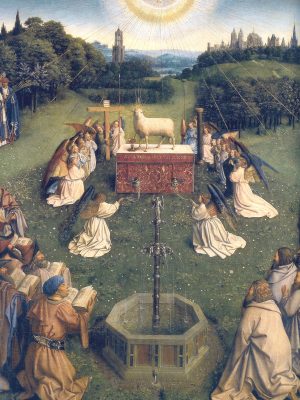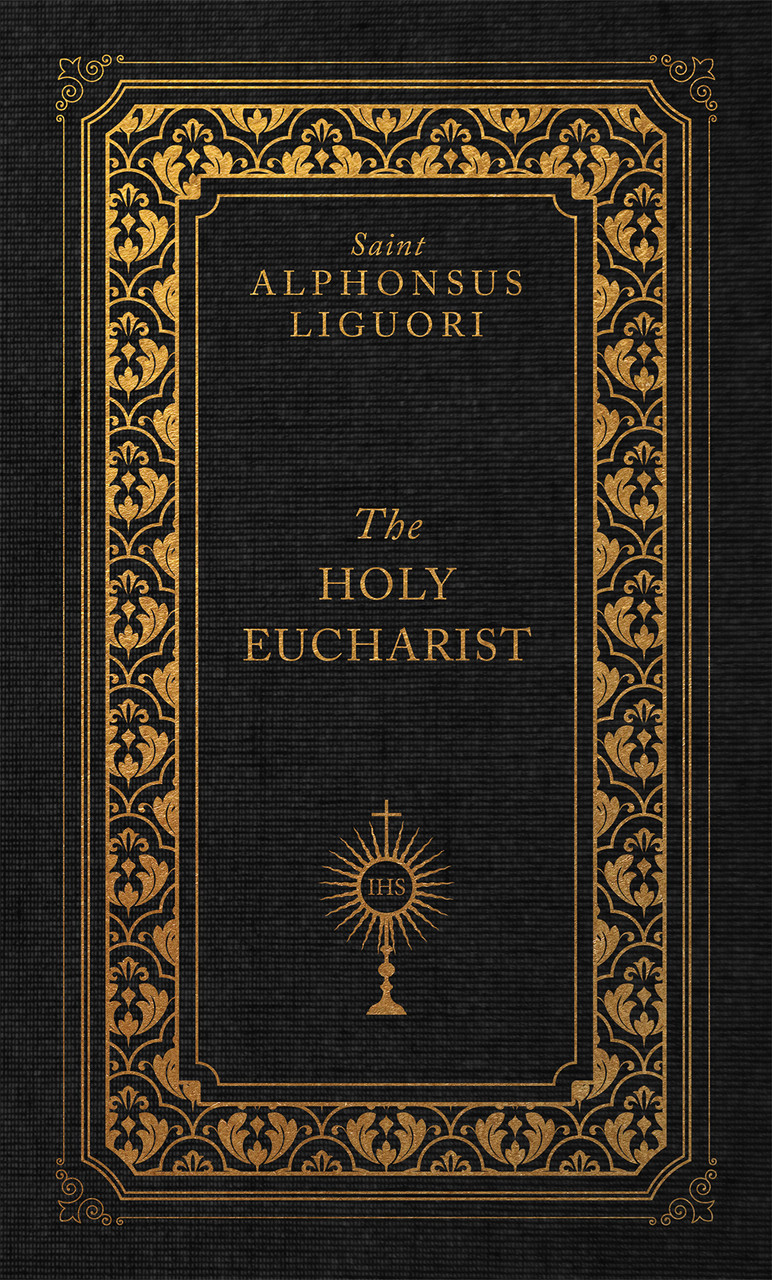The writings of Saint Alphonsus Liguori have inspired countless souls to conversion. His impassioned, yet gentle words evoke in readers a deeper love for God. The following prayers were excerpted from his work, The Holy Eucharist.
Egredimini et videte, filiæ Sion, regem Salomonem in diademate, quo coronavit illum mater sua in die desponsationis illius—“Go forth, ye daughters of Sion, and see king Solomon in the diadem wherewith his mother crowned him in the day of his espousals.”
O daughters of grace, O ye souls who love God quit the darkness of earth, and behold Jesus, your king, crowned with a crown of thorns; the crown of contempt and suffering with which the impious synagogue, his mother crowned him on the day of his espousals,—that is to say, on the day of his death, by means of which he espoused himself on the Cross to our souls. Go forth again, and behold him all full of compassion and love, now that he comes to unite himself to thee in this sacrament of love.
Has it indeed, then, cost Thee so much, my beloved Jesus, before Thou couldst come and unite Thyself to souls in this most sweet Sacrament? Wert Thou indeed obliged to suffer so bitter and ignominious a death? Oh, come, then, without delay, and unite Thyself to my soul also. It was at one time Thy enemy by sin; but now Thou desirest to espouse it by Thy grace. Come, Jesus, my spouse, for never more will I betray Thee; I am determined to be ever faithful to Thee. As a loving spouse, my whole thought shall be to find out Thy pleasure. I am determined to love Thee without reserve; I desire to be all Thine, my Jesus,—all, all, all.
II.
Fasciculus myrrhæ Dilectus meus mihi, inter ubera mea commorabitur—“A bundle of myrrh is my Beloved to me; he shall abide between my breasts.
The myrrh plant, when pricked, sends forth tears, and a healthful liquor from the wounds. Before his Passion, our Jesus determined to pour forth his divine blood from his wounds in so painful a way, to give it afterwards all to us for our salvation in this bread of life.
Come, then, O my beloved bundle of myrrh, O my enamored Jesus; Thou art indeed a subject of grief and pity to me when I consider Thee all wounded for me on the Cross: but then, when I receive Thee in this most sweet Sacrament, Thou becomest indeed to me more sweet and delicious than a bunch of the choicest grapes can be to one who is parched with thirst: A cluster of cypress my Love is to me, in the vineyards of Engaddi. Come, then, to my soul, and revive and satiate me with Thy holy love. Ah, what sweetness do I feel in my soul at the thought, that I have to receive within myself that same Saviour of mine who for my salvation was pleased to be drained of all his blood, and sacrificed on a cross! He shall abide between my breasts. No, my Jesus, never more will I drive Thee hence; and Thou shalt never more have to leave me. I am determined ever to love Thee, and to be always united and closely bound up with Thee. I will always belong to Jesus, and Jesus will be always mine: forever, forever, forever He shall abide between my breasts.
III.
Dum esset Rex in accubitu suo, nardus mea dedit odorem suum—“While the King was at His repose my spikenard sent forth the odor thereof.”
When Jesus comes to dwell in a soul in the Holy Communion, oh, how clearly does she see and know her own nothingness by the bright light which the king of heaven brings with him! As the spikenard is the most lowly amongst plants, so does the soul confess itself the most vile of all creatures; and when thus humbled, oh, how sweet is the odor which she breathes forth to her beloved king! and for this reason he invites her to unite herself to him in closer and closer bonds.
If, then, my soul, thou desirest that thy Jesus should repose in thee, consider thy own nothingness. Who art thou? what dost thou deserve? Humble thyself as thou shouldst do, by casting away from thyself all self-esteem which may keep Jesus at a distance from thee, or prevent him from coming to repose in thee.
Come to me, my dear Redeemer, come; and by thy divine light make me to see my own lowliness, my misery, my nothingness, that Thou mayest be enabled to repose in me with satisfaction to Thyself, to separate Thyself no more from me.
ooo
This article is taken from a chapter in The Holy Eucharist by St. Alphonsus Liguori which is available from TAN Books.








